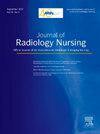Knowledge Gaps and Scan-Associated Distress Among Cancer Patients: A Cross-Sectional Study
Q3 Nursing
引用次数: 0
Abstract
Background
Cancer, a leading global cause of death, often requires radiological imaging, which can trigger psychological distress, including depression, anxiety, and stress.
Purpose
This descriptive study evaluated psychological distress and knowledge of imaging among 120 cancer patients in India.
Methods
Using the Depression Anxiety Stress Scale-21 and a 15-item knowledge questionnaire, data were analyzed with descriptive and nonparametric statistics.
Findings
Nearly half of the participants (49.2%) had poor knowledge of imaging procedures, 30% reported depression, over 40% experienced anxiety, and 10% exhibited stress. Knowledge was negatively correlated with depression (rho = −0.276, p = .002), anxiety (rho = −0.267, p = .003), and stress (rho = −0.184, p = .044). Lower socioeconomic status and claustrophobia were associated with higher anxiety, whereas prior information reduced anxiety levels.
Discussion
The findings highlight the importance of educational interventions to bridge knowledge gaps, reduce distress, and enhance patient outcomes, emphasizing a multidisciplinary approach that integrates psychological and educational support.
癌症患者的知识缺口和扫描相关焦虑:一项横断面研究
癌症是全球主要的死亡原因之一,通常需要放射成像,这可能引发心理困扰,包括抑郁、焦虑和压力。目的:本描述性研究评估了印度120名癌症患者的心理困扰和影像学知识。方法采用《抑郁焦虑压力量表-21》和15项知识问卷,采用描述性统计和非参数统计对数据进行分析。研究发现,近一半的参与者(49.2%)对成像程序知之甚少,30%的人报告抑郁,超过40%的人感到焦虑,10%的人表现出压力。知识与抑郁(rho = - 0.276, p = .002)、焦虑(rho = - 0.267, p = .003)、压力(rho = - 0.184, p = .044)呈负相关。较低的社会经济地位和幽闭恐惧症与较高的焦虑有关,而先前的信息则降低了焦虑水平。研究结果强调了教育干预在弥合知识差距、减少痛苦和提高患者预后方面的重要性,强调了综合心理和教育支持的多学科方法。
本文章由计算机程序翻译,如有差异,请以英文原文为准。
求助全文
约1分钟内获得全文
求助全文
来源期刊

Journal of Radiology Nursing
Nursing-Advanced and Specialized Nursing
CiteScore
0.80
自引率
0.00%
发文量
95
审稿时长
57 days
期刊介绍:
The Journal of Radiology Nursing promotes the highest quality patient care in the diagnostic and therapeutic imaging environments. The content is intended to show radiology nurses how to practice with compassion, competence, and commitment, not only to patients but also to the profession of nursing as a whole. The journal goals mirror those of the Association for Radiologic & Imaging Nursing: to provide, promote, maintain , and continuously improve patient care through education, standards, professional growth, and collaboration with other health care provides.
 求助内容:
求助内容: 应助结果提醒方式:
应助结果提醒方式:


